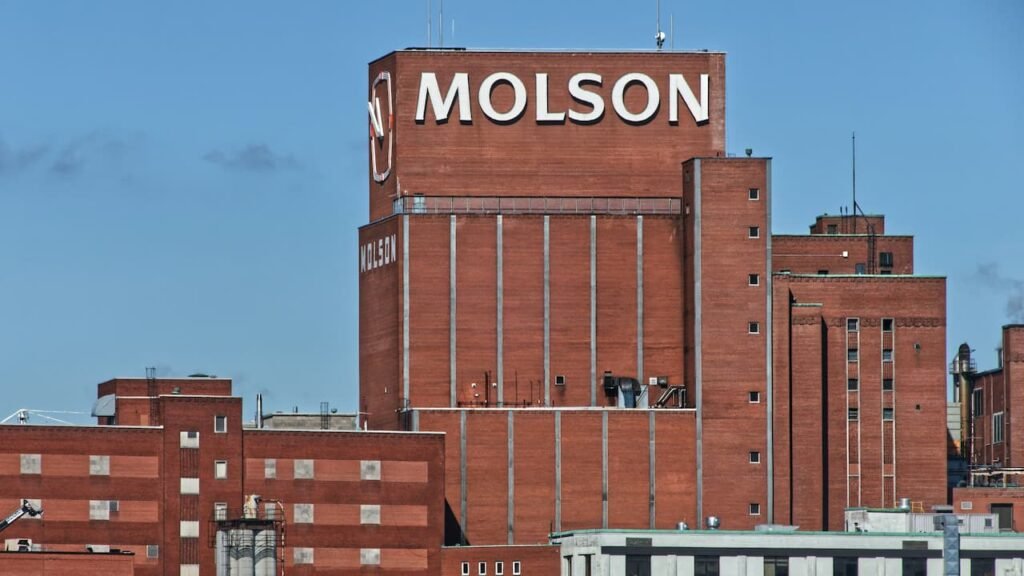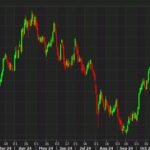Looking for a Canadian beer brands list? When we think of the biggest beer markets, the first countries that come to mind are in Europe, such as Belgium, France, Germany, and Czechia. As a Canadian, I think our beers have just as much to offer.
We have a wide selection of mainstream beers and plenty of microbreweries nationwide. They can seldom be found outside the country, but some cross the border to the US. They are in some Christmas markets and beer shows outside North America.
Some of these breweries are traded on Canadian and US stock markets. As their popularity increases, their presence in our glasses and portfolios might increase. Here is everything you need to know about Canadian beer brands.
new TradingView.widget(
“autosize”: true,
“symbol”: “NYSE:TAP”,
“interval”: “D”,
“timezone”: “Etc/UTC”,
“theme”: “light”,
“style”: “1”,
“locale”: “en”,
“toolbar_bg”: “#f1f3f6”,
“enable_publishing”: false,
“hide_top_toolbar”: true,
“hide_legend”: false,
“save_image”: false,
“container_id”: “tradingview_499c8”
);
Canadian Beer Brands Introduction
A few large players dominate the mainstream Canadian beer brands market, with Molson Coors Brewing Company and Anheuser-Busch InBev controlling nearly half of the market share.
In the last few years, there has been a consolidation in the Canadian beer market. Bigger North American brands have acquired smaller but successful breweries.
Others have been sold to bigger international players. So whether you want to do day trading or swing trade them, we have a list for you to watch.
1. Molson Coors Beverage (NYSE: TAP & TSX: TPX)
We begin our list of Canadian beer brands with Molson Coors Beverage Company, a major global player. The company was established in 1786 when John Molson established his brewery in Montreal, Canada.
Since 2009, the Molson family has partly reacquired one of the most prestigious NHL hockey clubs, the Montreal Canadiens. Today, the club is listed on the NYSE and TSX (Canadian Stock Exchange).
Molson Coors operates globally, with a significant presence in North America, Europe, and Asia. Some of the company’s most popular brands include:
- Coors Light
- Miller Lite
- Molson Canadian
- Blue Moon
- Coors Banquet
- Miller High Life
- Carling
- Peroni
In 2023, Molson Coors’s net sales grew by 9.3% year over year, income increased to $1.3B, and the company achieved volume, share, and net sales growth in its three largest global markets. In Q4 2023, its core brands (Coors Light, Miller Lite, and Coors Banquet) grew by double digits in the US market.
However, the brewery has invested in above-premium beverages like Spiked and Madri in recent years, contributing to its success. In 2024, it took a majority ownership stake in ZOA, a better-for-you energy brand co-founded by Dwayne “The Rock” Johnson, expanding its portfolio beyond traditional beer products.
Challenges & Struggles
Despite succeeding in some major metrics, Molson Coors has faced some challenges.
- Volume declines: While net sales have grown, the company has experienced volume declines in some markets, particularly in the premium beer segment and Latin America.
- Market competition: The beer industry is highly competitive, with Molson Coors facing pressure from large multinational competitors and craft breweries.
- Changing consumer preferences: The company has had to adapt to shifting consumer tastes, including increased interest in premium and craft beers and non-alcoholic alternatives.
- Economic conditions: Due to difficult economic conditions, Molson Coors has faced challenges in some markets. For example, Latin America volumes decreased by 5% in Q4 2023 due to challenging economic conditions in key markets.
According to its recent guidance report, Molson Coors’ management expects to keep growing despite struggles. The stock is about halfway down from its 2016 all-time high price but has recovered well since 2020. It also offers a decent yearly dividend yield (3% or $0.44 per quarter). So, keep an eye on this list of Canadian beer brands.
2. Labatt Blue (NYSE: BUD & EBR: ABI)
We continue our list of Canadian beer brands with Labatt Blue, founded in 1847 in London, Canada. Labatt is the largest brewing company in Canada, and its flagship products are well-known all over North America. Today, it is part of the global brewing giant Anheuser-Busch InBev.
Labatt Blue is the best-selling Canadian beer in the world, based on worldwide sales. In 1998, it won the silver medal in the International Lager category at the Brewing Industry International Awards. Anheuser-Busch InBev’s portfolio also features several popular beers in North America. Overall, the company’s global portfolio (over 300 brands) includes four of the top 10-selling beers in the world. Here’s a little Canadian breakdown, which accounts for 40% of the country’s market:
- Budweiser: In 2004, Budweiser took the top spot in the Canadian beer market.
- Labatt 50: Launched in 1950, it was Canada’s best-selling beer until 1979.
- Labatt Bleue Dry: A stronger lager produced in Quebec, with an alcohol content of 6.1%. It is the 3rd best-selling beer in Canada.
Anheuser trades on the NYSE & EBR (Belgian stock exchange). The company has struggled despite holding a #1 or #2 position in over 20 markets worldwide. Its margins have declined (from 35.4% to 34.3%), and its Bud Light brand has faced some criticism with publicity and commercials.
Like Molson Coors, BUD focuses on premium beverages and innovations to diversify its portfolio and satisfy new consumer tastes. Unlike the market, however, BUD’s stock is down over 20% YTD and nearly 40% in the last five years. To end on a positive note, the company offers a dividend of 1.75% ($0.22 per quarter).
3. Sleeman (TYO: 2501)
We conclude this list of Canadian beer brands with Sleeman, which was purchased by Sapporo in 2006 for CAD 400M. This deal ended Sleeman’s status as an independent Canadian brewer, making it the last of the top three Canadian brewers to accept foreign ownership.
Sapporo trades on the Japanese Stock Exchange (TYO). Its stock price has increased by over 30% YTD and over 200% in the last 5 years. Unlike Molson Coors and Anheuser, Sapporo excels in the stock market.
Before the acquisition, Sleeman was struggling financially. In Q4 2025, its earnings dropped to $539,000 ($0.03 per share), down from $3.9M ($0.23 per share) the previous year. Revenue declined, competition increased, and cost-cutting measures were in place.
The acquisition by a larger, international brewing company like Sapporo addressed these challenges and secured Sleeman’s future in the competitive Canadian beer market. Is this what awaits smaller beer producers in Canada?
Canadian Microbrewery Brands
Like in most beer-drinking countries, not everyone appreciates the taste of mainstream beers like Budweiser, Heineken, Bud Light, and the rest. In Canada, we also like our local microbreweries, which produce seasonal, high-quality brews.
We might not be able to find them in our favorite bars, restaurants, or grocery stores for now, but they might slowly find their way around the world.

1. Big Rock Brewery (TSX: BR)
Let’s start with the obvious: Big Rock’s stock price has reached an all-time low, trading at $1.12 on the TSX. This reflects ongoing concerns about the company’s financial health. In Q3 2024, Big Rock reported a net loss of $0.9m, widening from a $0.2 m loss.
Despite a revenue increase primarily due to increased co-packing activity, wholesale volumes decreased by 6.2%, and debt increased. As a result, Big Rock’s stock price continues to reach weekly all-time lows.
What are the reasons for these struggles? Big Rock faces competition like mainstream brewers, and consumer preferences are changing rapidly. The company’s investments in the BC and Ontario markets did not yield the expected return.
It is exploring all its options, including selling the business. Unless a deal is in sight that offers a short-term gain, I would avoid this stock.
Not Trading on Stock Exchanges
Most microbrewers in Canada or the US remain private or family businesses. They are happy with their products and do not wish to expand exponentially to please their shareholders at the expense of the consumer.
Some big names in Canada, such as Bellwoods Brewery, Dieu Du Ciel, Unibroue, and others, have won numerous awards for their brews and can be found all over their respective provinces. However, it is unlikely that they will trade on any stock exchange anytime soon.
Final Thoughts: Canadian Beer Brands
To conclude, many Canadian breweries were independent for decades but had to sell to international giants to remain competitive in Canada and North America. Examples include Molson, Labatt, and Sleeman.
The beer industry is very competitive and extremely saturated, and entry into this space is relatively easy. Furthermore, consumer preferences are changing rapidly.
Many are switching to premium brews or non-alcoholic beverages. Investing in Canadian beer brands is becoming more challenging for investors as the space is crowded, and companies are underperforming the stock market.
Frequently Asked Questions
What Is the Most Popular Canadian Beer?
Molson, Labatt, and Alexander Keith are some of the most popular beers in the country. Tastes differ by province.
Is Coors Light a Canadian Beer?
Molson Coors is a Canadian-American company.
What Is the Oldest Canadian Beer Brand?
Molson is the oldest brand. It was established in 1786.



